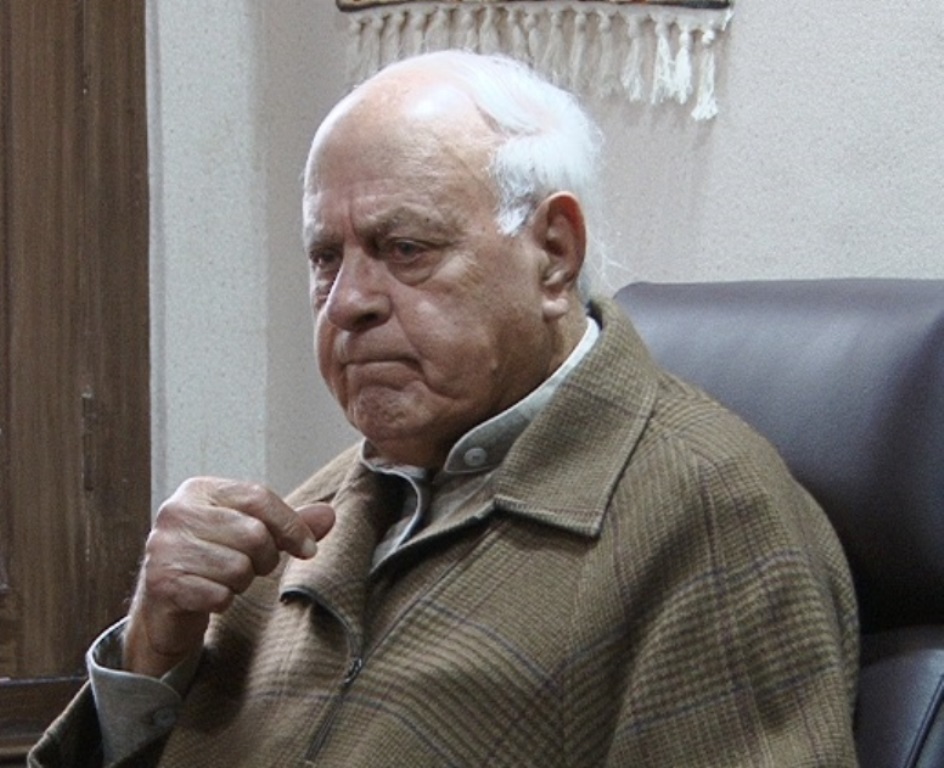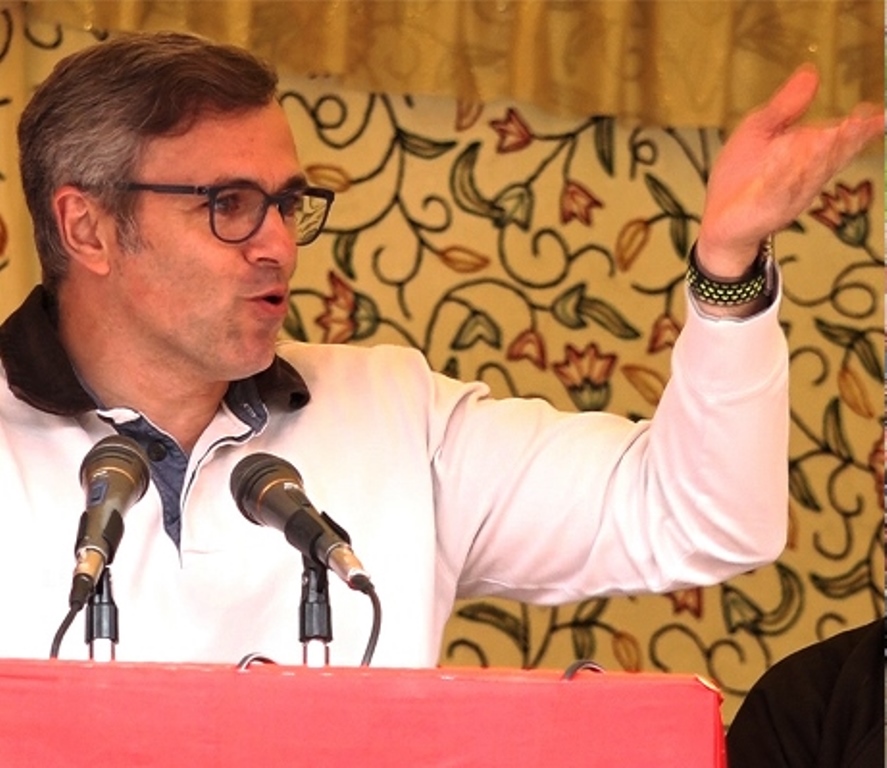SRINAGAR: A district court in north Kashmir’s Bandipora district on Friday rejected the bail plea of the four accused of being involved in human trafficking case.
In November last year, five people, including a Rohingya man, were arrested by the police for their alleged involvement in a human trafficking racket. The case was cracked by Hajin police station after the police received a tip off that some people were trafficking Rohingya women from Bangladesh and forcing them to marry locals in Jammu and Kashmir for money.
The two accused including Nazir Ahmad Chopan son of Sonaullah Chopan Resident of Vijipara Hajin and Fayaz Ahmad Parray son of Gh Mohidein Parray Resident of Check Ganastan Tehsil Sumbal, represented by Advocate Mir Shabir and Associates, claimed innocence, stating they were falsely implicated.
They argued that their detention since November 25, 2023, had left their elderly parents in distress, impacting their reputation and socio-economic status.
On the opposing side, the JK, represented by the learned APP, painted a grave picture of the case. The accusations of human trafficking, a Scheduled Offense under the NIA Act, 2008, were presented as a heinous crime with international dimensions.
The prosecution’s stance was clear – releasing the accused on bail might undermine the gravity of the offense. The severity of the charges was underscored, with specific references to Section 370 of the IPC, which dealt with human trafficking.
The prosecution outlined grounds for opposing bail, including the involvement of foreigners, the invocation of the Foreigners Act, 1946, and the potential connection to cross-border crime syndicates.
The learned APP argued that the accused were not just lone individuals but part of a network exploiting vulnerable individuals. The severity of the potential punishment, involving rigorous imprisonment and fines, was stressed as a factor to be considered by the court.
The court proceedings revealed the complexity of the case. The accused, maintaining their stance of innocence, argued that they were ready to abide by any terms and conditions set by the court for their release on bail.
They stressed their roles as the sole breadwinners of their elderly families, highlighting the impact of continued detention on their lives.
The learned APP, however, presented a comprehensive opposition to the bail application. Grounds included the seriousness of the offense, the potential tampering with evidence, and the threat to the prosecution’s case if the accused were released.
The incomplete nature of the investigation, with some accused still at large, added weight to the argument against bail. The prosecution painted a vivid picture of the accused being integral to a network that exploited vulnerable individuals, suggesting a potential threat to community safety if they were released.
The court heard the perspectives of both sides. The defense, attempting to establish innocence, cited case laws in support of their claims. The prosecution, on the other hand, presented case laws reinforcing the severity of the offense and the precedent of denying bail in similar circumstances.
After careful consideration, the court delivered a judgment that echoed the gravity of the charges. The judgment said, “For the foregoing reasons and discussions, the bail application moved by learned counsel of petitioners is rejected. Order is announced accordingly. Application is disposed of and consigned to records after due compilation.” The court, acknowledging the degradation of human values and the direct threat to national security, firmly rejected the bail application.
“The human values have degraded to such an extent that they are selling these victims like an domestic animals to one and another, thereby totally ignoring this fact that the said victims being the human being are also having the equivalent right as a women which other womens of their age are entitled. That means the rights which are available to the sisters, daughters of these accused persons are equally available to these victim-girls and their only fault that they because of their poverty as well as because of being forcibly or tactfully kidnapped from their family routes are taken away to the place of an unknown country and place where they are totally alien to the language, society as well as custom. That by way of solemnizing the Nikah ceremony of these victims from outside the country they are instrumental in settling the outsiders in the state is a direct threat to the national security of the country,” the court observed
Similarly, the accused, Reyaz Ahmad Bhat and Abdul Qayoom Khan, were seeking bail, but the Principal Sessions Judge rejected their application, citing the severity and heinous nature of the crime. The case, registered under FIR No 116 of 2023 at Police Station Hajin, includes charges under Sections 370 and 109 of the Indian Penal Code (IPC). The accused were arrested on December 30, 2023, and have been in police custody since. The victims, discovered during the investigation, are reported to be foreigners who entered India without proper documents, invoking the Foreigners Act, 1946.
The bail application was filed on January 1, 2024, and underwent arguments and objections on January 19, 2024. The learned APP (Assistant Public Prosecutor) Abdul Majid vehemently opposed the bail, highlighting the gravity of the offense. The accused are alleged to be part of an international racket involved in human trafficking, exploiting vulnerable individuals from Burma and Bangladesh.
The prosecution argued that the severity of the punishment, potential cross-border crime syndicate involvement, and incomplete investigation were strong grounds for denying bail. The fear of tampering with evidence, witness interference, and the accused being a threat to community safety further fueled the prosecution’s opposition.
In response, the defense, represented by Faizan-Ul-Haq Advocate, presented case law and argued that the accused were innocent, falsely implicated, and ready to comply with any conditions set by the court for bail. The defense claimed that the arrest was based on suspicion without reasonable cause, and both accused were laborers and sole breadwinners for their families.
The judge, in considering the arguments, expressed deep concern over the sale and purchase of Rohingya women, describing it as a degradation of human values in the modern digital society. The court said that there is the need to deal sternly with those involved in such heinous acts to send a strong message to society.
The judge dismissed the defense’s claim that the accused were not connected to the offense, highlighting their presence at the Nikah ceremony and their financial transactions related to the illegal activity. The court noted that the accused played a role in settling outsiders in the country illegally, posing a direct threat to national security.
The court ultimately denied bail, stating that the accused, by engaging in the sale and purchase of victims, were not law-abiding citizens. The decision was based on the belief that there were reasonable grounds to connect the accused with an international racket of human trafficking.
The court ultimately denied bail, stating that the accused, by engaging in the sale and purchase of victims, were not law-abiding citizens. The decision was based on the belief that there were reasonable grounds to connect the accused with an international racket of human trafficking.
The court Observed that “the human values have come down to such an extent that they are selling these victims like a domestic animals to one and another, thereby totally ignoring this fact that the said victims being the human being are also having the equivalent right as a women, which other women’s of their age are entitled. That means the rights which are available to the sisters, daughters of these accused persons are equally available to these victim-girls and their only fault that they because of their poverty as well as because of being forcibly or tactfully kidnapped from their family routes are taken away to the place of an unknown country and place where they are totally alien to the language, society as well as custom. That by way of solemnizing the Nikah ceremony of these victims from outside the country. They are instrumental in settling the outsiders in their country is a direct threat to the national security of the country.”















